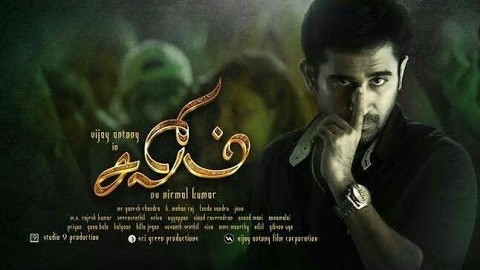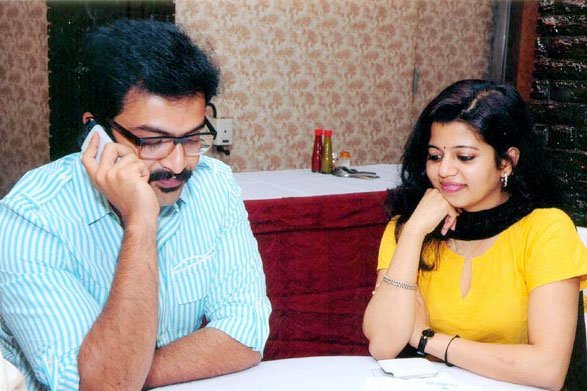
Actor Vishnu Vishal and Actres Sri Divya in Jeeva Movie Stills
Hustle, it says, as we pause to revel a little longer in a moment; there’s a larger agenda at hand. Not unlike a tour-operator who’s showing the sights, and who can’t wait to get to his prize destination; something he’s been waiting to show all day. Something he takes particular pleasure in unveiling. And expects his audience to erupt in cheers at the show.
Jeeva is narrated in a series of flashback sequences; the tale of a little boy who is a cricket fanatic. Who hails from a modest background, doesn’t have enough money to buy a bat of his own. Someone who’d rather spend all day at the playground than the classroom. A tale that probably defines millions in the country, a tale so near yet so far.
In an early moment in the movie, we see Jeeva ogling a display of cricket bats in a store. He enquires after the price of every make; and finally, when the exasperated shopkeeper asks him what he’s after, Jeeva answers resignedly, “Andha anju rooba rubber ball thaanga.”
There are those charming instances about motta-madi cricket in the movie, its endearingly quirky rules (“one-pitch catch”) – unique and at that same time, strangely similar across all motta-maadis, the classroom version – played with a writing pad, and a crumpled sheet or two, those squabbles over batting chances; of makeshift bats and balls, of stumps carved from stray slivers of wood… Suseenthiran packs in all those fond moments from the past in an engaging narrative.
But he chivies us along all the same, for he has something more to tell.
Only a little later into the movie, do we know that the director has been prepping his audience for drama; cleverly weaving in snatches from the past into a popular premise that would certainly evoke emotion. And in that shining moment, we realise the power of cinema, and of responsible film-making. When Suseenthiran showcases the struggle of a cricket fanatic, who strives to make it big in the national circuit amidst sniffs of disapproval from his family, we sympathize with him.
In another instance, we see Jeeva as part of the team at a much-anticipated Ranji match. His father, who wants him to hold “a proper government position”, has come in to watch for the first time. But Jeeva is not playing this game; he’s a substitute, he sits in the dug-out, and fetches drinks for the batsmen.
His irate father leaves the stadium in a huff.
And this is when the director slaps a label on his misery, launching into a thinly-veiled tirade against casteism. He points at the president of the state cricket association, a Mr Parthasarathy, and speaks eloquently through a series of dramatic scenes about the influence that he wields over the selection of players. Mr Parthasarathy prefers his “aalunga” over the others, Suseenthiran insinuates.
And this is also when we begin to withdraw a little.
Why dunk a script, laden with great writing otherwise, in casteist colours? We would have loved to watch Jeeva blossom into a great cricketer, yes. We would have loved to follow his life, his struggles. Of how a little boy from one of the modest neighborhoods in the city brings laurels to the nation. After all, isn’t that the tale of some of the biggest cricketers of the country?
Recommended
But more than all of this, we would have loved to revel in those little moments from the past. Of motta-madi cricket, and its distinctive rules. About those “one-pitch” catches; about how there’s no ‘six’ in the rule-book, and about how lobbing the ball over the terrace ramparts is fair grounds for dismissal.
That’s what sport is all about.
Shout-out: To the humorous Soori, whose awesome punch-lines stayed with us. “Oru nalla team ku enna azhagu? Last batsman a kalathula eranga vidama irukardhu.”
Needless to say, he was the “last batsman”.
The Jeeva Review is a Silverscreen original article. It was not paid for or commissioned by anyone associated with the movie. Silverscreen.in and its writers do not have an advertising relationship with movies that are reviewed on the site.



